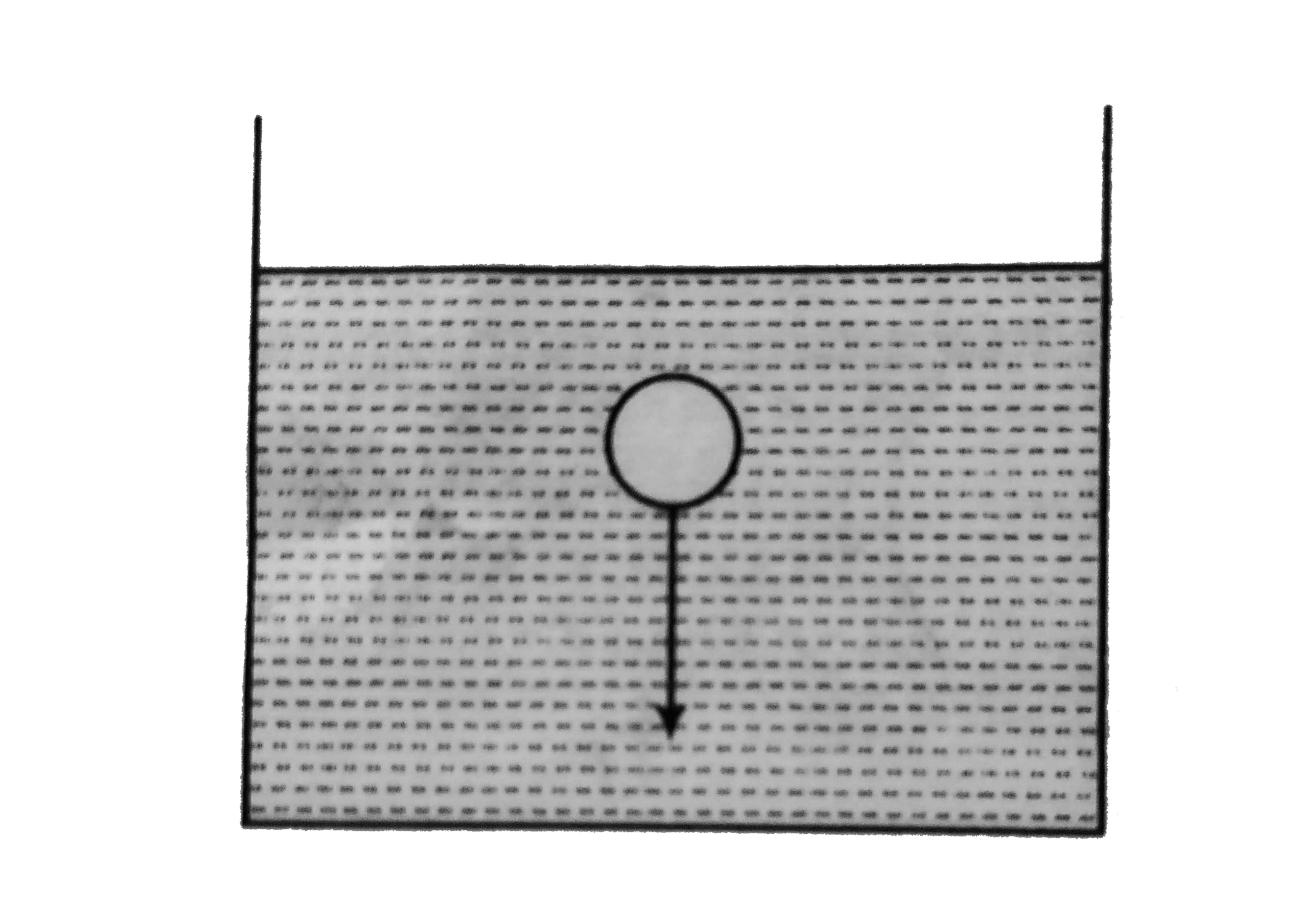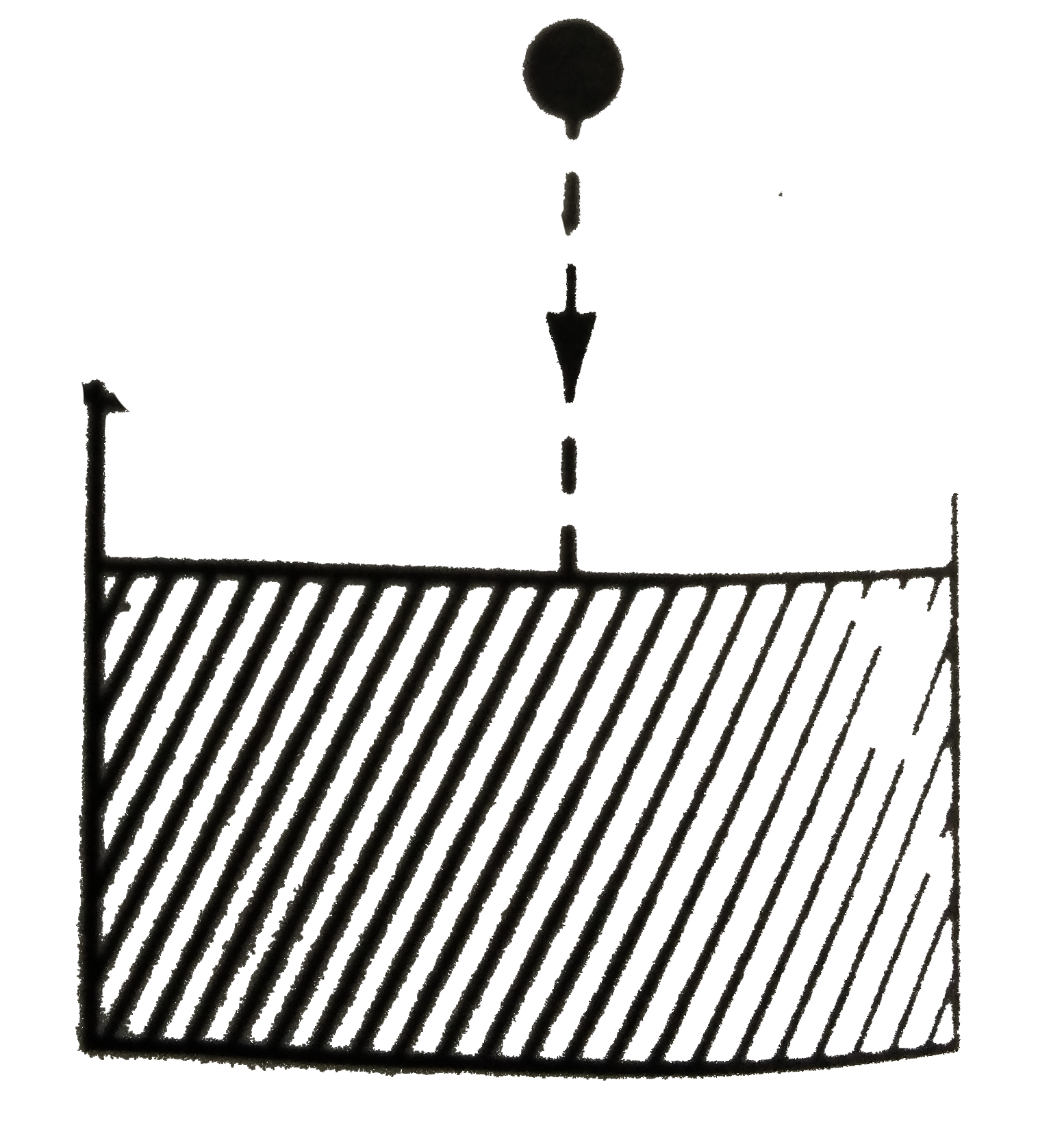A spherical solild of volume V is made of a material of density ρ1. It is falling through a liquid of density ρ2(ρ2<ρ1). Assume that the liquid applies a viscous froce on the ball that is proportional ti the its speed v, i.e., Fviscous=−kv2(k>0). The terminal speed of the ball is
√Vg(ρ1−ρ2)k
Vgρ1k
√Vgρ1k
Vg(ρ1−ρ2)k
The correct Answer is:A
The forces acting on the solid ball when it is falling through a liquid are mg downwards, thrust by Archimedes principle upwards. The viscous force rapidly increases with velocity, attaining maximum when the ball reaches the terminal velocity. Then the acceleration is zero mg−Vρ2g−kv2=ma
is volume where, v is the terminal velocity.
When the ball is moving with terminal velocity a = 0.
Therefore Vρ1g−Vρ2g−kv2=0 ⇒ v=√Vg(ρ1−ρ2)k

Similar Questions
A body weighs W1 in a liquid of density ρ1 and W2 in a liquid of density ρ2. What is the weight of body in a liquid of density ρ3?
View SolutionA stream line body with relative density ρ1 falls into air from a height h1 on the surface of a liquid of realtive density ρ2, where ρ2>ρ1. Find the time of immersion of the body into the liquid.
View Solution
Knowledge Check
A spherical solid ball of volume V is made of a material of density ρ1. It is falling through a liquid of density ρ2(ρ2<ρ1). Assume that the liquid applies a viscous force on the ball that is proportional to the square of its speed v, i.e., Fviscous=−kv2(k>0). The terminal speed of the ball is
A(a) √Vg(ρ1−ρ2)kB(b) Vgρ1kC(c) √Vgρ1kD(d) Vg(ρ1−ρ2)kA solid ball of density ρ1 and radius r falls vertically through a liquid of density ρ2. Assume that the viscous force acting on the ball is F=krv, where k is a constant and v its velocity. What is the terminal velocity of the ball ?
A(4πgr2ρ1−ρ23k)B(2πrρ1−ρ22gk)C(2πg(ρ1+ρ2)3gr2k)DNone of theseA ball of density ρ is released from deep inside of a liquid of density 2ρ. It will move up
Awith an increasing accelerationBwith a decreasing accelerationCwith a constant accelerationDwith zero acceleration
A ball of volume V and density ρ1 is moved downwards by a distance 'd' in liquid of density ρ2. Find total change in potential energy of the system.

View SolutionA block of material has a density ρ1 and floats three-fourth submerged in a liquid of unknown density. Show tht the density ρ2 of the unknown liquid is given by ρ2=43ρ1.
View SolutionA small ball of mass m and density ρ is dropped in a viscous liquid of density σ. Ather some time the ball falls with a constant velocity. Calculate the viscous force acting on the ball.
View SolutionA ball of density ρ is dropped from a height on the suraca of a non-visous liquid of dinsity 2ρ. Choose the correct options.

View SolutionThe terminal velocity V of a spherical ball of lead of radius R falling through a viscous liquid varies with R such that
View Solution
